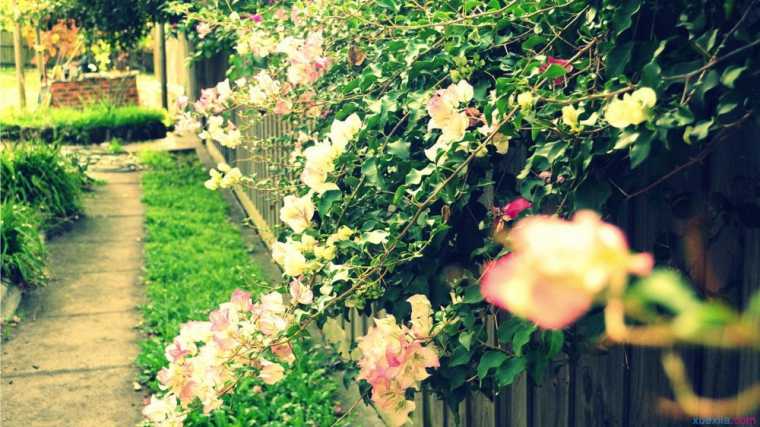英语哲理美文
优美的文字于细微处传达出美感,并浸润着人们的心灵。通过英语美文,不仅能够感受语言之美,领悟语言之用,还能产生学习语言的兴趣。度过一段美好的时光,即感悟生活,触动心灵。下面小编为大家带来英语哲理美文,希望大家喜欢!
英语哲理美文:钉子和篱笆
There was a little boy with a bad temper. His father gave him a bag of nails and told him that every time he lost his temper, to hammer a nail in the back fence.
The first day the boy had driven 37 nails into the fence.
Then it gradually dwindled down. He discovered it was easier to hold his temper than to drive those nails into the fence.
Finally the day came when the boy didn't lose his temper at all. He told his father about it and the father suggested that the boy now pull out one nail for each day that he was able to hold his temper.

The days passed and the young boy was finally able to tell his father that all the nails were gone. The father took his son by the hand and led him to the fence. He said, "You have done well, my son, but look at the holes in the fence. The fence will never be the same. When you say things in anger, they leave a scar just like this one. You can put a knife in a man and draw it out. It won't matter how many times you say I'm sorry, the wound is still there. A verbal wound is as bad as a physical one.
Friends are a very rare jewel, indeed. They make you smile and encourage you to succeed. They lend an ear, they share a word of praise, and they always want to open their hearts to us. Show your friends how much you care.
以前,有个小男孩,脾气很坏,他爸爸就给他一包钉子,让他每次发脾气的时候就往篱笆上钉钉子。
就在第一天,小家伙就已经在篱笆上钉了37个钉子。
慢慢地,他钉的越来越少了,原来他发现控制住自己的脾气要比往篱笆上钉钉子容易得多。
最后,终于有一天,小家伙脾气都不发了。他对爸爸说了这件事,可爸爸却建议他每天再从篱笆上拔出一颗钉子,这样他的脾气就能控制住了。
日子一天天过去,最后,那个男孩告诉他爸爸说钉子他都拔完了。爸爸就牵着他的手,带他去篱笆那儿。爸爸说:“儿子,你做的很好。但是,你看看篱笆上的小洞,每根篱笆都绝不会相同的。每次你发脾气的时候,它们都会就像这个一样留下伤疤。你用刀刺伤一个人,可以把刀拔出来。 但是,无论你说多少遍对不起都是没用的,因为伤还在那里。言语里的伤害和身体上的伤害都同样糟糕。
事实上,朋友是珍贵的珠宝。他们给你欢笑,给你走向成功的鼓励;他们倾听你的心声,分享成功的欢乐;而且,他们始终都向你敞开他们的胸怀,这些都说明你应该更加珍惜你的朋友。
英语哲理美文:自由与约束
One windy spring day, I observed young people having fun using the wind to fly their kites. Multicolored creations of varying shapes and sizes filled the skies like beautiful birds darting and dancing. As the strong winds gusted against the kites, a string kept them in check.
Instead of blowing away with the wind, they arose against it to achieve great heights. They shook and pulled, but the restraining string and the cumbersome tail kept them in tow, facing upward and against the wind. As the kites struggled and trembled against the string, they seemed to say, “Let me go! Let me go! I want to be free!” They soared beautifully even as they fought the restriction of the string. Finally, one of the kites succeeded in breaking loose. “Free at last,” it seemed to say. “Free to fly with the wind.”
Yet freedom from restraint simply put it at the mercy of an unsympathetic breeze. It fluttered ungracefully to the ground and landed in a tangled mass of weeds and string against a dead bush. “Free at last” free to lie powerless in the dirt, to be blown helplessly along the ground, and to lodge lifeless against the first obstruction.
How much like kites we sometimes are. The Heaven gives us adversity and restrictions, rules to follow from which we can grow and gain strength. Restraint is a necessary counterpart to the winds of opposition. Some of us tug at the rules so hard that we never soar to reach the heights we might have obtained. We keep part of the commandment and never rise high enough to get our tails off the ground.
Let us each rise to the great heights, recognizing that some of the restraints that we may chafe under are actually the steadying force that helps us ascend and achieve.
在一个有风的春日,我看到一群年轻人正在迎风放风筝玩乐,各种颜色、各种形状和大小的风筝就好像美丽的鸟儿在空中飞舞。当强风把风筝吹起,牵引线就能够控制它们。
风筝迎风飘向更高的地方,而不是随风而去。它们摇摆着、拉扯着,但牵引线以及笨重的尾巴使它们处于控制之中,并且迎风而上。它们挣扎着、抖动着想要挣脱线的束缚,仿佛在说:“放开我!放开我!我想要自由!”即使与牵引线奋争着,它们依然在美丽地飞翔。终于,一只风筝成功挣脱了。“终于自由了,”它好像在说,“终于可以随风自由飞翔了!”
然而,脱离束缚的自由使它完全处于无情微风的摆布下。它毫无风度地震颤着向地面坠落,落在一堆乱草之中,线缠绕在一颗死灌木上。“终于自由”使它自由到无力地躺在尘土中,无助地任风沿着地面将其吹走,碰到第一个障碍物便毫无生命地滞留在那里了。
有时我们真像这风筝啊!上苍赋予我们困境和约束,赋予我们成长和增强实力所要遵从的规则。约束是逆风的必要匹配物。我们中有些人是如此强硬地抵制规则,以至我们从来无法飞到本来能够达到的高度。我们只遵从部分戒律,因此永远不会飞得足够高,使尾巴远离地面。
让我们每个人都飞到高处吧,并且认识到这一点:有些可能会令我们生气的约束,实际上是帮助我们攀升和实现愿望的平衡力。